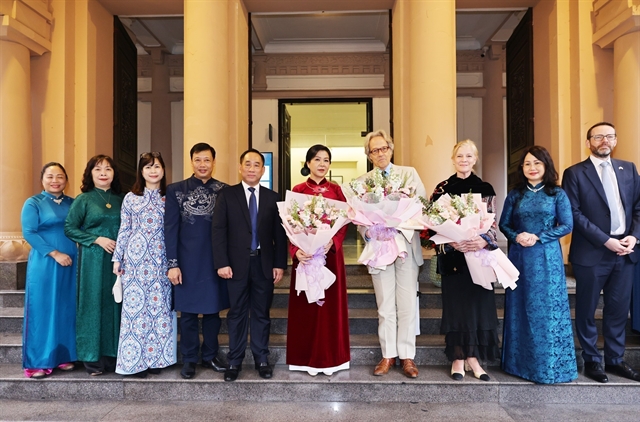 Society
Society

As Việt Nam is experiencing the worst wave of COVID-19 infections with thousands of new cases recorded each day, concerns are growing for all citizens, and pregnant women are no exception. Doctors say mothers to be should be extra careful against the virus as they are in a moderate clinically vulnerable group.
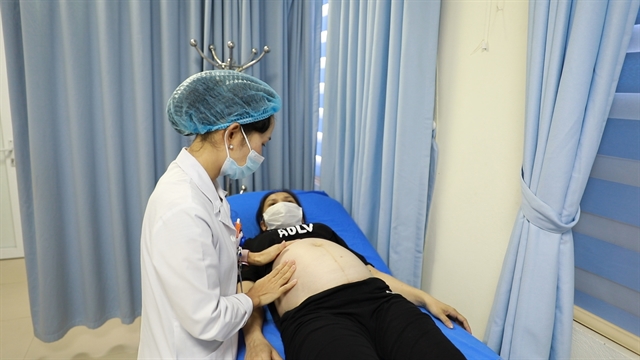
|
| Doctor Phan Thị Thu Nga performs a check-up on a mother to be. — VNS Photo Bảo Hoa |
Vân Nguyễn
As Việt Nam is experiencing the worst wave of COVID-19 infections with thousands of new cases recorded each day, concerns are growing for all citizens, and pregnant women are no exception.
Doctors say mothers-to-be should be extra careful against the virus as they are in a moderate clinically vulnerable group.
“When pregnant women are infected with COVID-19, they are more likely to experience more severe illness and have complications including stillbirth, premature birth as well as severe complications in mothers’ organs,” Doctor Phan Thị Thu Nga, deputy head of Outpatient Department of the National Hospital Of Obstetrics And Gynecology told Việt Nam News.
“Women often go through physiological changes during their pregnancy, notably in respiratory and cardiovascular systems.”
With the growth of the fetus and uterus, lung volume will change, and pregnant women will have to increase the amount of air they breath, according to Nga.
She said: “Cardiovascular changes include increased cardiac output and blood volume. Lungs and heart are the two organs that can be easily attacked by COVID-19.
“In case a mother is infected with COVID-19 and suffers pneumonia, her baby must be taken out before the due date and the prematurely born child may be prone to many risks as the respiratory system hasn’t developed fully and the mother is at the risk of more severe infection and other risks.”
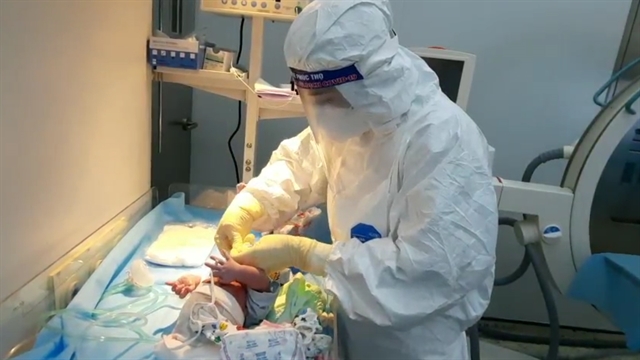
|
| A doctor of the National Hospital of Tropical Diseases takes care of a child born to a COVID-19 positive mother. — Photo courtesy of the hospital |
Doctor Nguyễn Thị Hồng, who works at the National Hospital of Tropical Diseases, a frontline health facility treating COVID-19 patients, is part of a team performing caesarean deliveries for pregnant women.
One of her patients is a 33-year-old woman from northern province of Điện Biên who was infected with COVID-19 and diagnosed with respiratory failure prior to the operation in May.
“This was a very difficult case, "Hồng said. There are a lot more risks and challenges when it comes to a surgery for a COVID-19 positive pregnant women.”
Using protective measures including wearing face shields, goggles and protective suits helps health professionals avoid the disease transmissions but they make it more difficult for surgeons to perform tasks, she added.
What concerned doctors the most about this particular case was the mother’s respiratory failure. This posed a threat for both the mother and the child, she said, adding that the child might suffer from the same problems after being born.
The risk of bleeding during the surgery in combination with the patient’s respiratory disease placed her in a critical condition, Hồng said.
The team, including obstetricians, a midwife, anaesthesia doctors, paediatricians and emergency doctors, successfully conducted a caesarean delivery for the COVID-19 mother who was pregnant with In Vitro Fertilization (IVF) method after 11 years of infertility treatment.
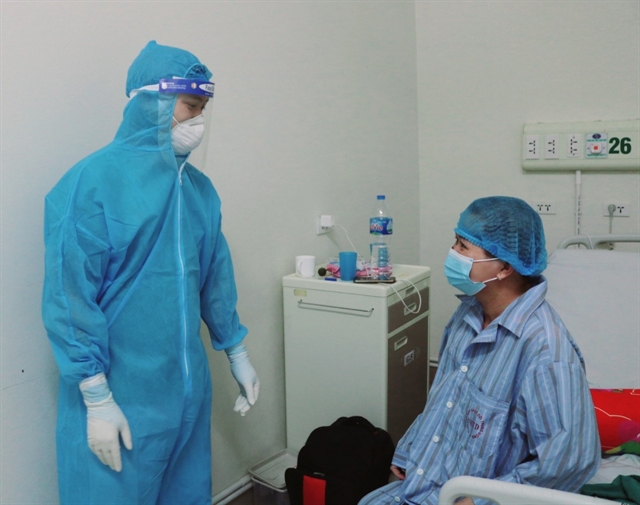
|
| The COVID-19 mother who was pregnant with In Vitro Fertilization (IVF) method after 11 years of infertility treatment recovers in June after giving birth to a baby girl. — Photo courtesy of the hospital |
The baby girl was delivered safely on May 21st, weighing 2.6kg and the mother was discharged from the hospital in late June.
So far five children have been born to COVID-19 positive mothers safely through caesarean deliveries at the hospital. Many others have been born naturally to positive and negative mothers here.
Doctor Nga said the COVID-19 virus is transmitted by exposure to infectious respiratory fluids and the vertical transmission of COVID-19 is unlikely but avoiding infections from the mother to health professionals during the operation is crucial.
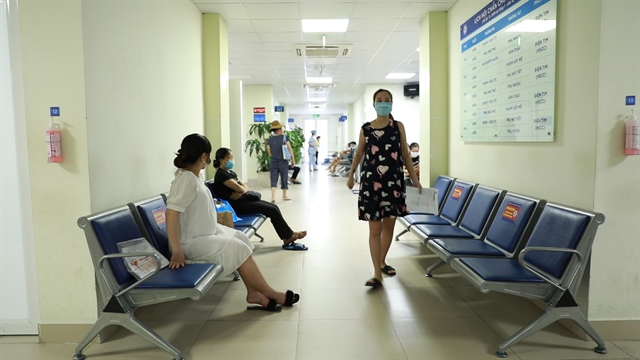
|
| Pregnant women visit the National Hospital Of Obstetrics And Gynaecology in July. — VNS Photo Bảo Hoa |
She said: “During the surgery, doctors need to ensure not only safety for the mother and child but also avoid disease infections.
“If the mother’s condition is severe, it will be very tough for surgeons and the prognosis for the mother will be more negative.”
The doctor said it is important to follow the preventive measures to avoid being infected throughout the pregnancy.
“Pregnant women should going out only in necessary situations, maintain good nutrition and have regular check-ups,” she said.
The doctor recommends that those who have to quarantine at hospitals or quarantine facilities should also maintain good nutrition and mentality to boost their immunity.
She said vaccinations in pregnant women should be considered based on benefit and risk factors.
“Việt Nam has implemented vaccination for its people and WHO recommends vaccinations in pregnant women when the benefits of vaccinations to the pregnant woman outweigh the potential risks,” Nga said. VNS

